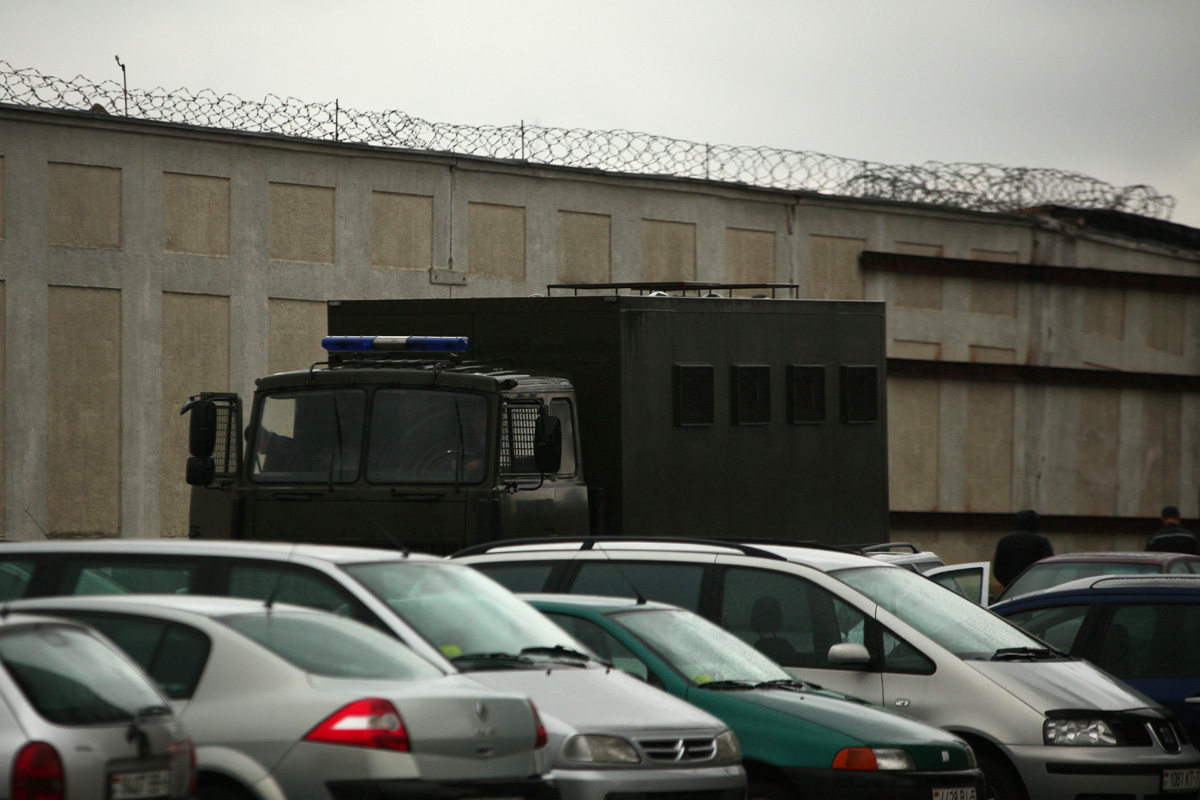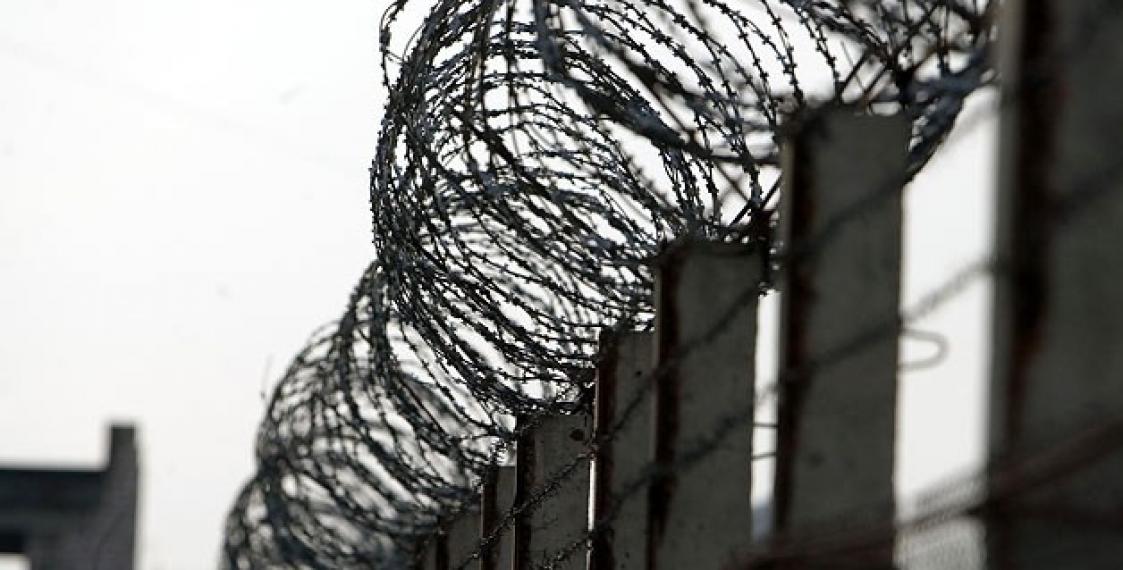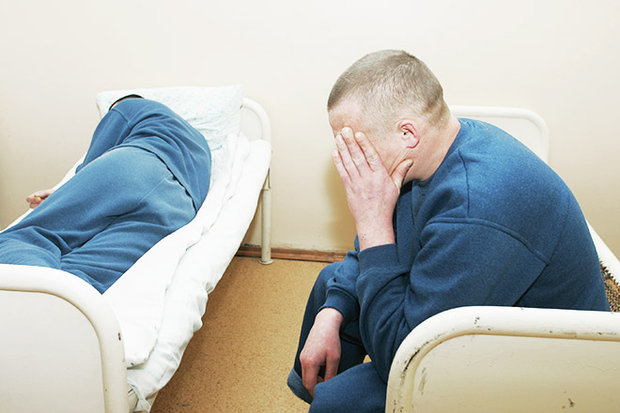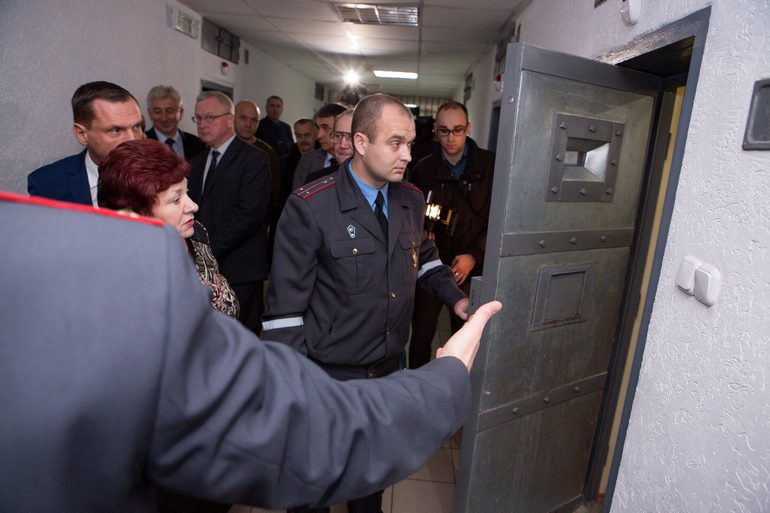The Department of Corrections (DC) is the liver of the Belarusian state. It filters unwanted elements of society, lives by its own rules, being an independent division within the Ministry of Internal Affairs. It is a state within a state. The public knows next to nothing about what’s going on behind the barbed wire of 66 correctional facilities. Do people want to know it? There’s virtually no information about prisoners. If it appears sometimes, it is either scant data on the official website of the Ministry of Internal Affairs or accidental numbers on TV heard and recorded by human rights activists by chance. Most of documents are classified or intended for internal use only. Even a daily intake of bread for prisoners is classified information.
What is it like to be a prisoner in Belarus? What is it like to be a disabled prisoner? Do they exist? Even our towns are designed for physically healthy people. A barrier-free environment is our national problem. Out of prison, wheelchair users can grit their teeth and find a better route, but a prison is a place that must necessarily ensure accessibility for people with disabilities, Pavel Sapelka, a human rights activist at Viasna centre, notes. In the same way, the country must enforce international laws regarding rights of prisoners. But, as director of the Office for the Rights of People with Disabilities Siarhei Drazdouski (Sergei Drozdovsky), notes, international law is a flexible thing that can be ignored, while domestic laws can be interpreted in different ways. As a result, only one of 44 members of seven public monitoring commissions at the Ministry of Justice has some relation to human rights groups. Maybe it the reason why the commissions never find violations. Violations exist, which can be proved at least by deaths in prisons. The state called the Department of Corrections is open for everyone, but people with disabilities or serious health problems can never see their release.

Pretrial detention centre № 1 in Minsk’s Volodarsky Street. Photo: Vadzim Zamirouski, TUT.BY
This is what happened to Ihar Ptischkin (Igor Ptichkin). He was imprisoned for three months for driving without a license (his license had been revoked earlier). He died in a detention facility a few days later. It took his mother three years to get a criminal case launched and bring the guilty to account. It was a high-profile case widely covered by independent media.
Aleh Bahdanau (Oleg Bogdanov) is a man with disability category II and heart problems who was imprisoned for a brawl while being drunk. His condition was getting worse in prison day by day. He wrote about it to his family and sought help in the medical unit. Instead of help, he received punishment for lying on bed. He died the next day after he wrote his will. His family faced endless runarounds from investigators, refusals to launch a criminal case against prison doctors and staff. They again put their corporate reputation above a human life, the highest humanistic value, as school textbooks “Human Being. Society. State” say.
Corporate reputation is a widely discussed topic today. Interior minister Shunevich and his henchmen zealously protects it. A minor with dementia (psychiatric disability; acquired dementia, mental decay due to brain damage) is held under pressure at a detention facility in Homel. He says he is being beaten and raped, but people in police uniform don’t see a crime and threaten the child and his foster mother instead of launching a probe. They say he will be thrown into the most awful prison if he gives evidence against the detention facility. These are the most high-profile cases covered by the media. But no one knows how many people were killed or injured in jails, because prison staff usually don’t wash their dirty linen in public. The same happened to inmate Andrei Kniazkou (Andrei Kniazkov) , who got an open head injury at prison work and received partial compensation only five years later.
I’ve never thought that prisoners can be disabled: wheelchair users, people without arms, blind, deaf people, people with heart diseases or a severe form of cancer. “They committed a crime, so they must suffer,” people usually think, but the sense of punishment is not sufferings but deprivation of freedom.

Photo: BELTA
Leanid Hvozdzeu (Leonid Gvozdev), chief at correctional facility №17 in Shklou in 1993-2003, the facility where young Lukashenka had started his career before becoming a collective farm director, says a special unit for 90-100 disabled or old inmates was created in his institution. Their block was closer to the dining area. Inmates also had slightly easier incarceration conditions depending on their health. Under law, they can receive an extra parcel, medical package and visit. They may choose not to work at manufacturing facilities, may have an carer, also an inmate, and receive a social pension from the state. Earlier, 50% of the pension was deducted to cover incarceration costs, while the rest was spent on paying debts or was given to inmates for personal needs.
According to human rights activist Anastasia Zhauryd (Anastasia Zhavrid), a correctional facility now deducts up to 90% of pensions as incarceration fees. A disabled person is a goldmine for jails as incarceration costs are classified information. No one knows how their money is spent, because it is not recorded in financial reports.
According to Hvozdzeu, a medical unit has necessary equipment, but if a problem is serious or if prison medical officers can’t solve it, an inmate is transferred to a local hospital, which has a few wards with barred windows and a security post. In extreme cases, an inmate is transferred to the republican prisoners’ hospital on a special train that runs on particular days. The hospital’s departments located in different prisons sometimes look like in semi-basement structures with discarded equipment, according to human rights activists.
Under the president’s decree №288 of June 7, 2010, “On the construction of the complex of buildings and facilities of the pretrial detention centre and the republican general hospital”, it was planned to open a prisoners’ hospital in 2010-2015, but opening dates were delayed several times. The hospital is expected to open in 2020, with luck. The most obvious explanation of the delays is the crisis. If so, why were new manufacturing facilities in several correctional facilities opened in 2016?

Photo: bg.ru
However, there’s is progress in some correctional facilities: Mahilou prison №4 has a cell for prisoners with problems in activities of daily living; certain conditions for disabled inmates were created in a correctional facility in Navasady, including a toilet for disabled people, which is also used by ordinary inmates as luxury. A year ago, the Office for the Rights of People with Disabilities sent all correctional facilities letters, inviting them for cooperation if they have prisoners with disabilities. Only two institutions sent formal replies and one prison chief phoned and expressed his interest.
A serious disease can be a mitigating factor when delivering a verdict, but human rights activists and the prison chief agree that it is rarely taken into account. There were cases when people with disabilities were declared physically fit in prison as if they had recovered, but the most probable reason is that either a medical board wasn’t called to asses an inmate’s health or it neglected its duties.
Prison authorities can call a medical board and apply to a court to release an inmate due to his or her serious health problems. Hvozdzeu recalls dozens of cases when prison terms were reduced and about five cases when inmates were released. However, their state was hopeless, so they were released to die. Zhauryd says she doesn’t understand why doctors and prison authorities don’t call a medical board for seriously ill inmates and don’t apply for their release, because it would allow them to shift responsibility for prisoners’ state of health onto prisoners themselves.
The Shklou correctional facility didn’t have problems with medications. All medical drugs were delivered from a local pharmacy, but problems occurred when the required medication wasn’t in stock and prison doctors had to order it. If medications were rare, prisoners could receive them from their families in a medical parcel. In Aleh Bahdanau’s case, his mother Nina Bahdanava claims her son didn’t receive the medications she had sent him. He constantly complained in his letters that he didn’t have medications, didn’t receive treatment and felt worse and worse.
Leanid Hvozdzeu thinks much depends on a doctor’s character and attitude to work – if they can give up on an inmate, they will do the same in an ordinary hospital. But it’s rather a person’s depravity that system faults. Unfortunately, this depravity can be fatal if you are imprisoned and deprived of choice. Pavel Sapelka says: “White coats shouldn’t be worn by law-enforcers, that’s the main thing.”
The Ministry of Healthcare does not regulate the activities of prison doctors, but it controls how medical standards are fulfilled in all regions of Belarus. According to Drazdouski, the Department of Corrections doesn’t have a full range of narrow specialists and has to apply to civil medical institutions. However, there are many ‘buts’: sometimes penitentiaries would like to get rid of seriously ill prisoners.
This is what happened to a prisoner who contacted the Office for the Rights of People with Disabilities. His disease is not on the list of diseases giving the right to a softer punishment or release, though the man has plenty of health problems and uses an urinary catheter. He is convicted under article 328 (drugs). The president ordered to punish drug-related crimes severely and not to grant an amnesty to prisoners convicted of such crimes. As a result, the man travels from one correctional facility into another.
Anastasia Zhauryd says it’s because a medical board that applies to a court for an inmate’s release can be called after the inmate has spent a particular number of days in the medical unit, but this term is reset to zero when the inmate is transferred to another penitentiary. So, it’s impossible to reach the necessary number of days with many transfers.

Photo: Belarusian Ministry of Internal Affair’s press office
I still can’t understand under what laws the Department of Corrections lives. I watch a video, in which singer and MP I. Darafeyeva (Dorofeyeva) and head of the National TV and Radio Company H. Davydzka (Davydko) visit prison №4 in Mahilou and praise prison food, comparing it to restaurant meals. I talk to Uladzimir Pikulik (Vladimir Pikulik) , a member of the Republican Public Monitoring Commission (“it is supposed to monitor but not to record violations,” according to Zhauryd), who visits correctional facilities (once in three months, often with the prior consent of the Department of Corrections, according to Pikulik) and often wants to thank prison authorities for their work. I talk to Leanid Hvozdzeu and believe him, because he speaks about the relationship between prisoners and staff absolutely openly and honestly.
On the other hand, I see disappointing data from human rights activists, whose requests to be included into monitoring commissions are declined by the Ministry of Justice; endless struggle of inmates or their families with the penal system, stories from my friend, a former prisoner, who says how he was forced to work though he had conjunctivitis and recalls that the only medications were stomach and headache pills. It gives a different picture of life within the Department of Corrections.
There’s one thing I can say for sure: this structure must be transparent, with public control and public statistics on prisoners. In this case, the number of death and cases of health deterioration among inmates may reduce, people won’t have to prove prison staff’s guilt or innocence and the public image of law-enforcers will improve a little.
Subscribe to our mailing list: